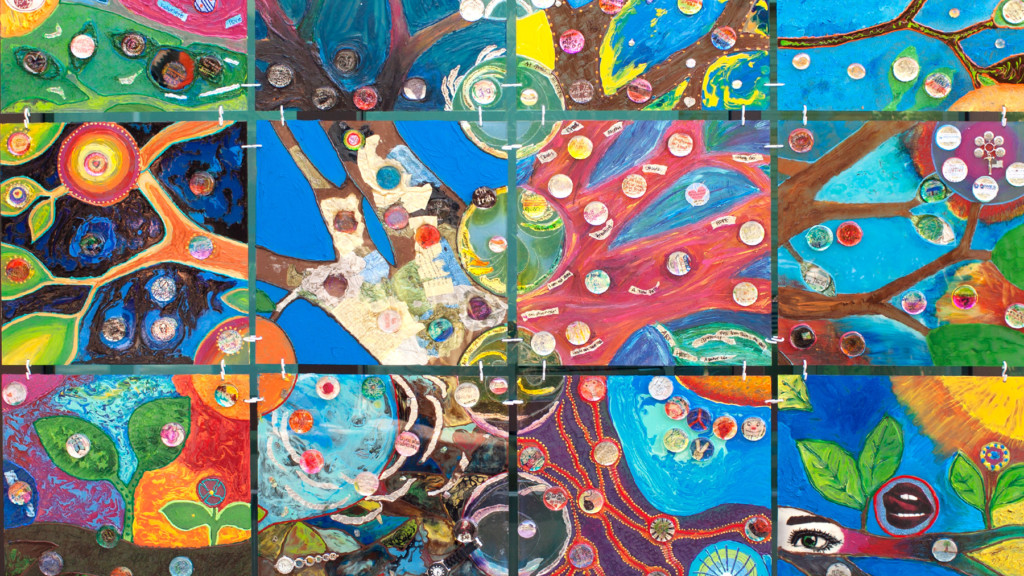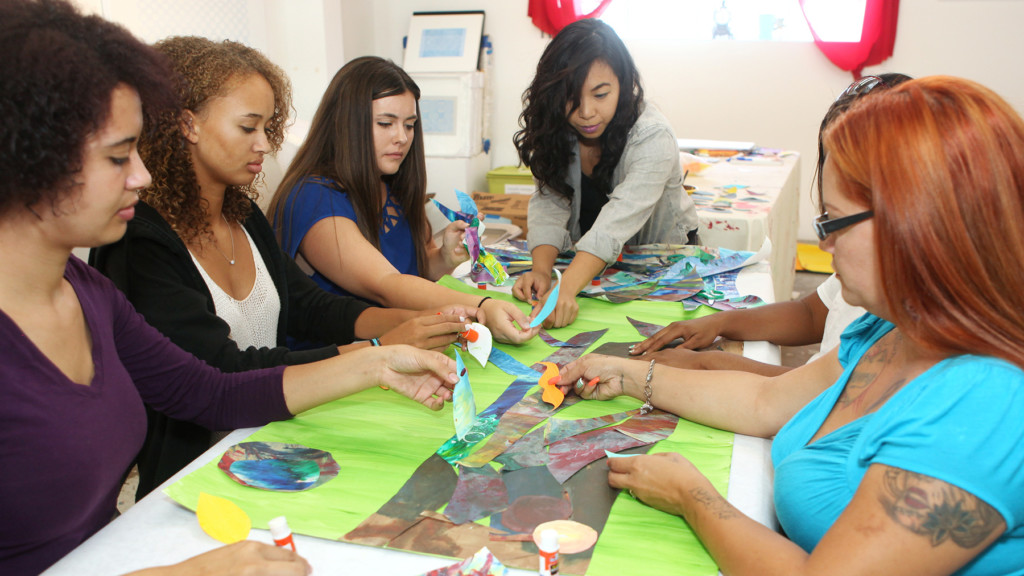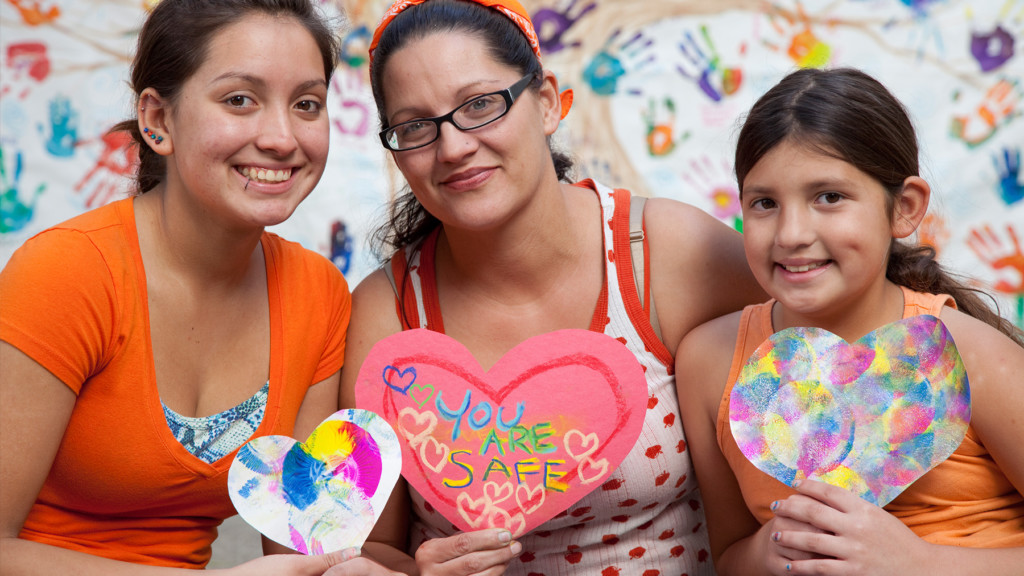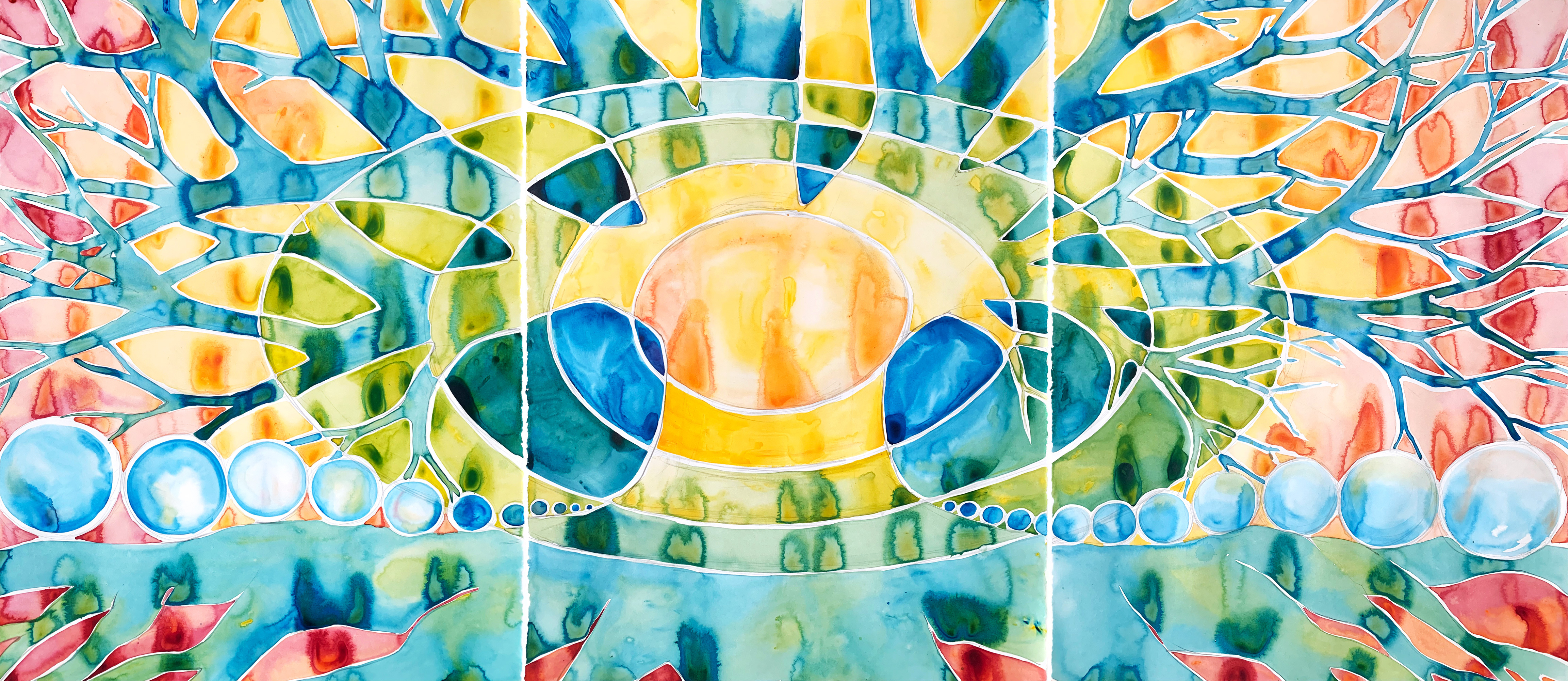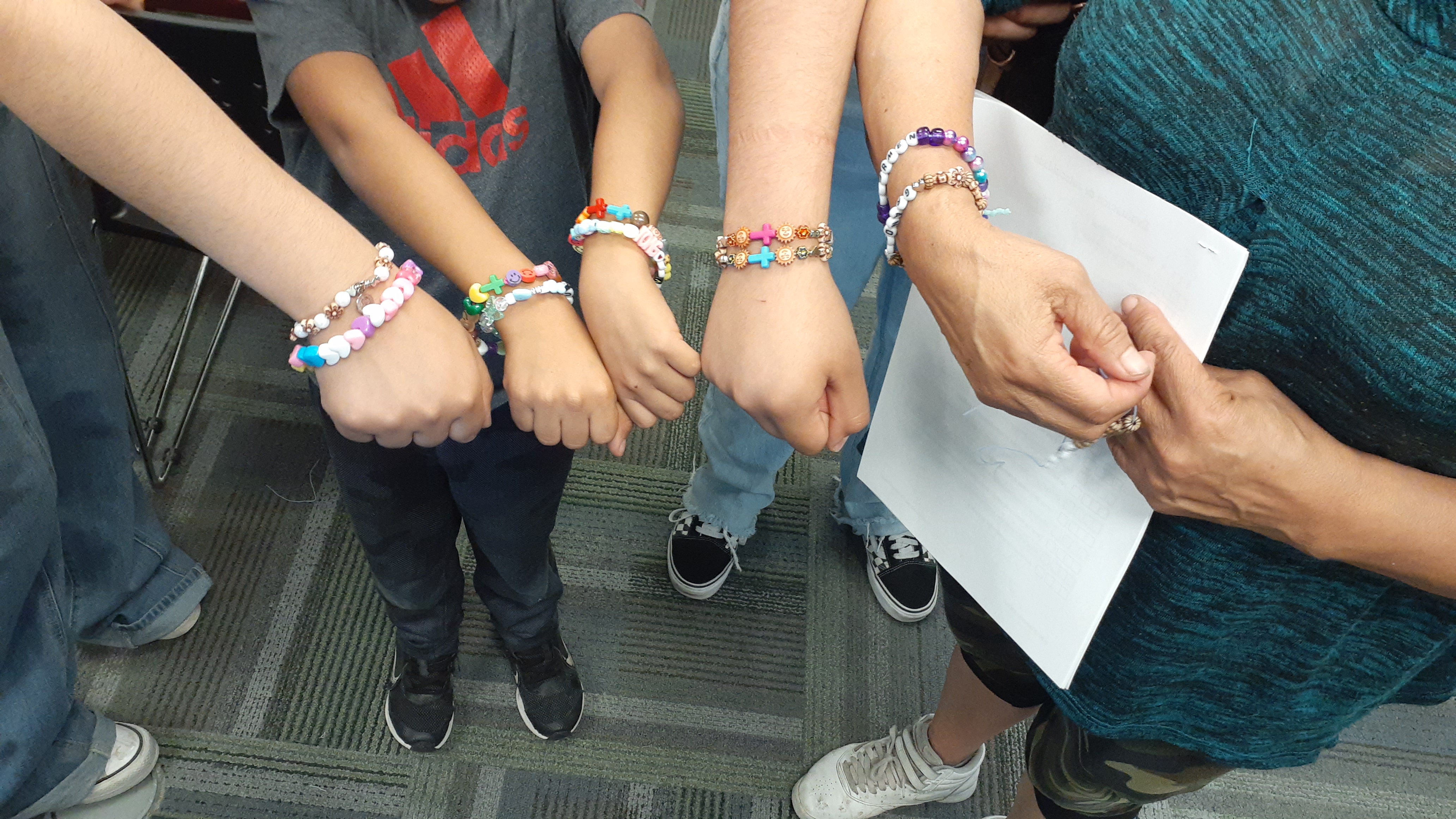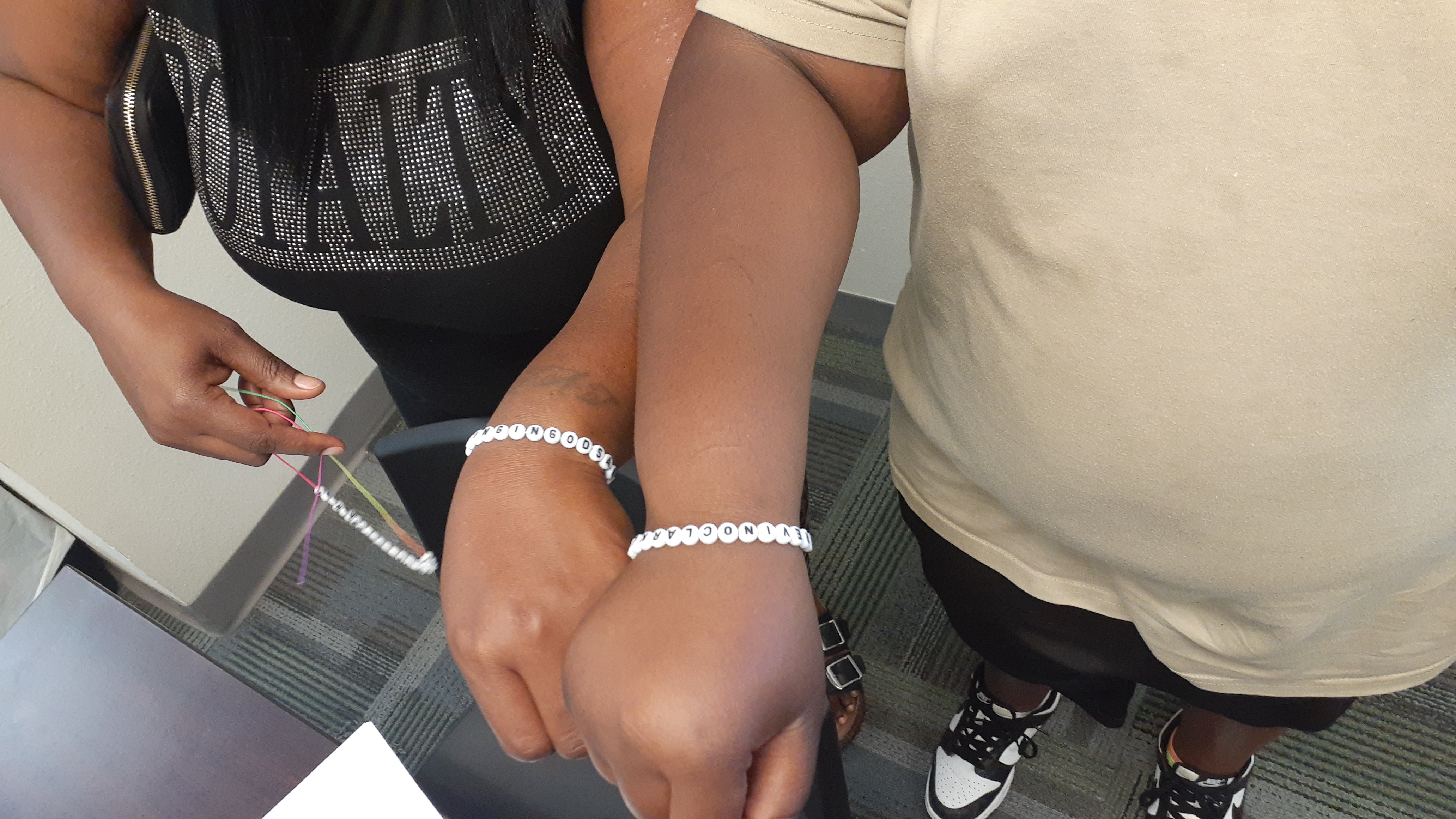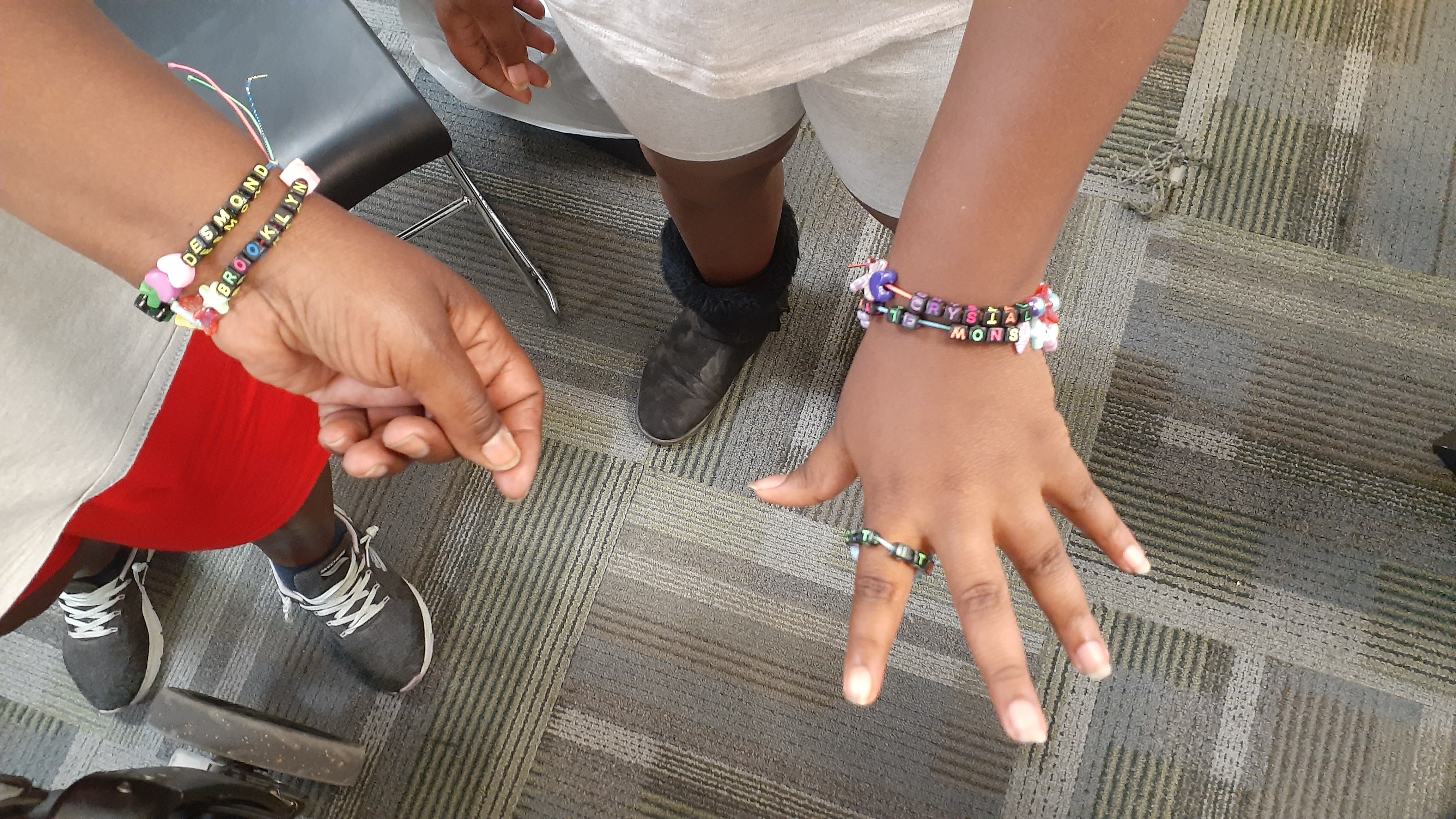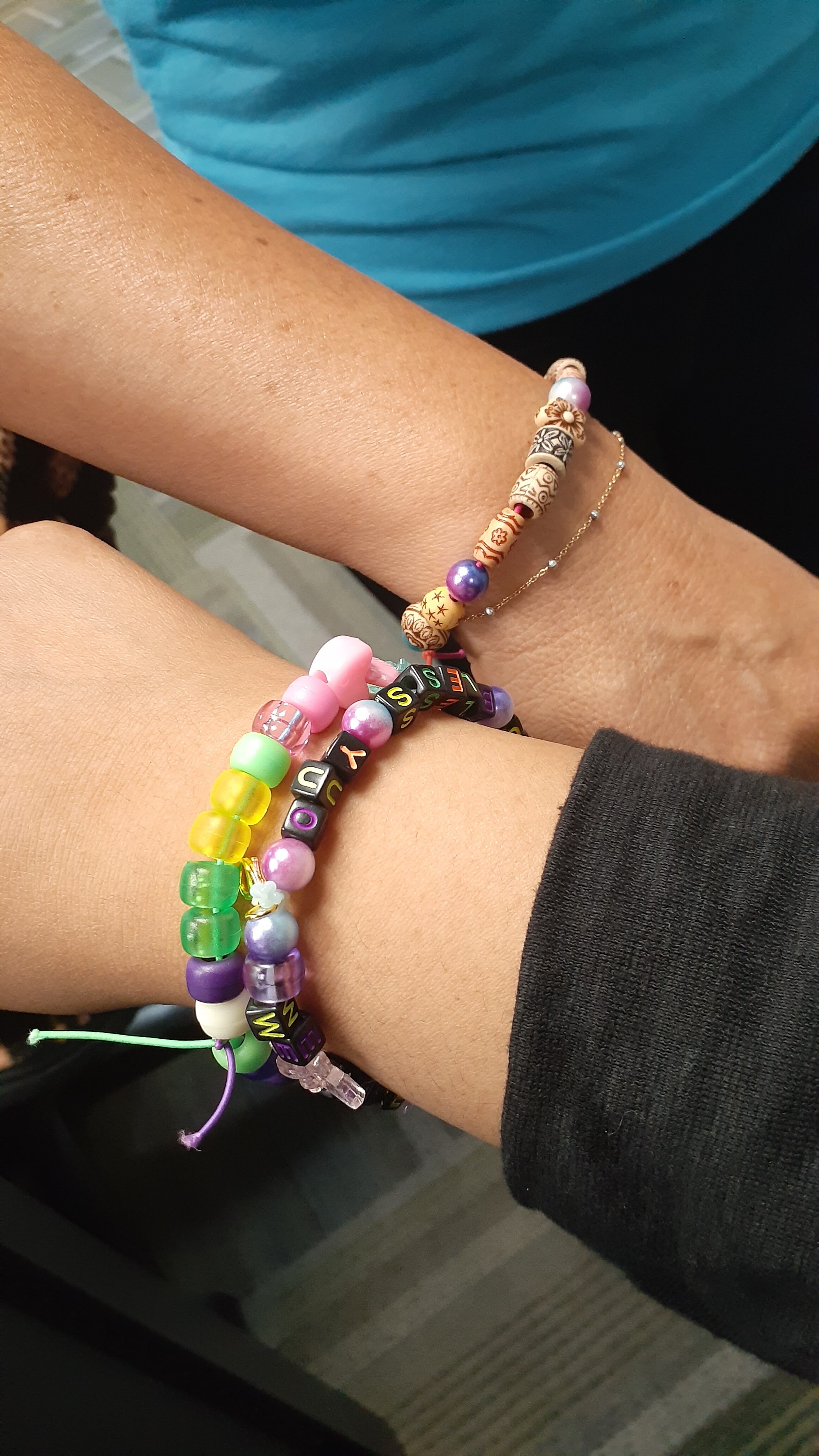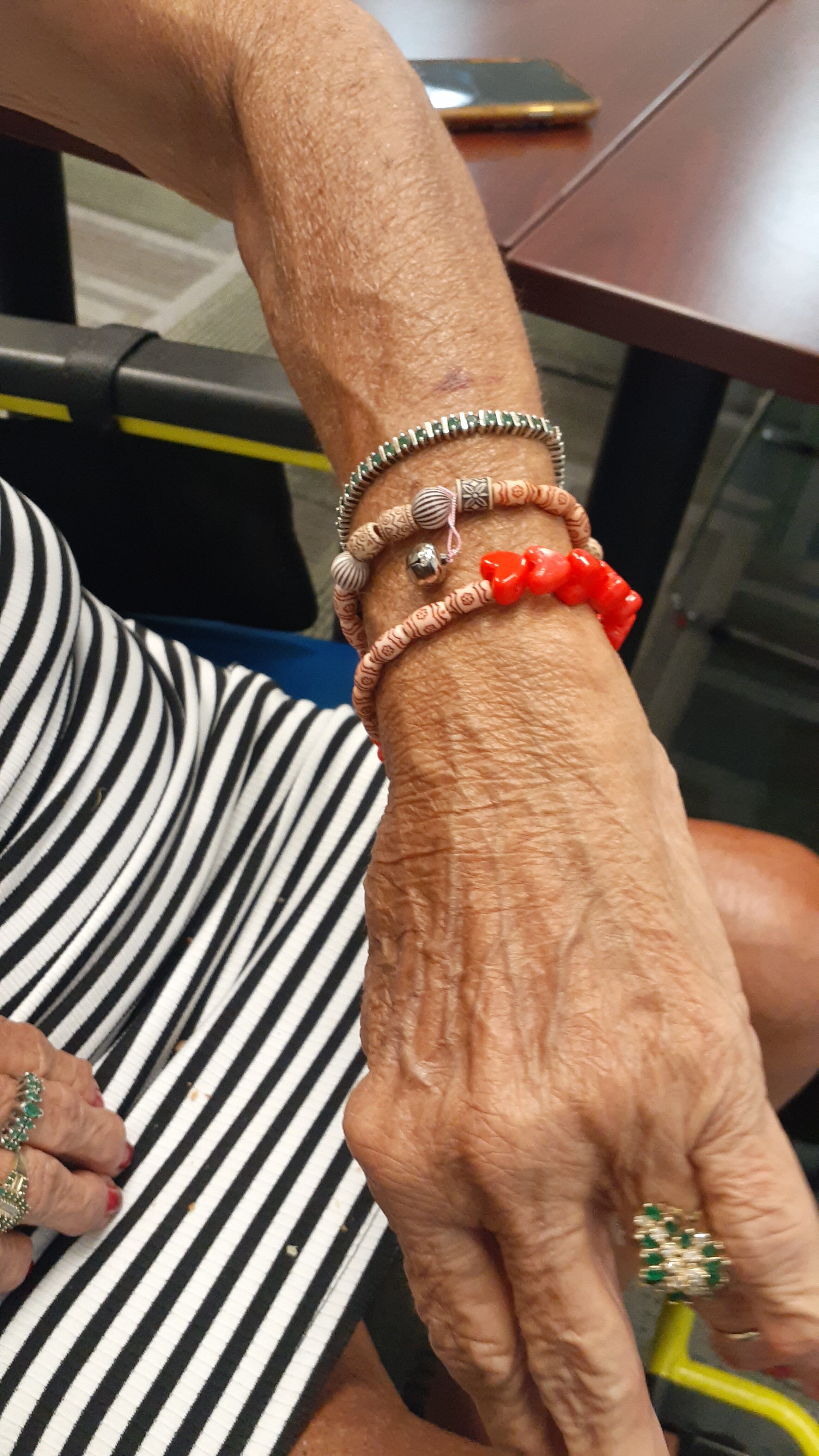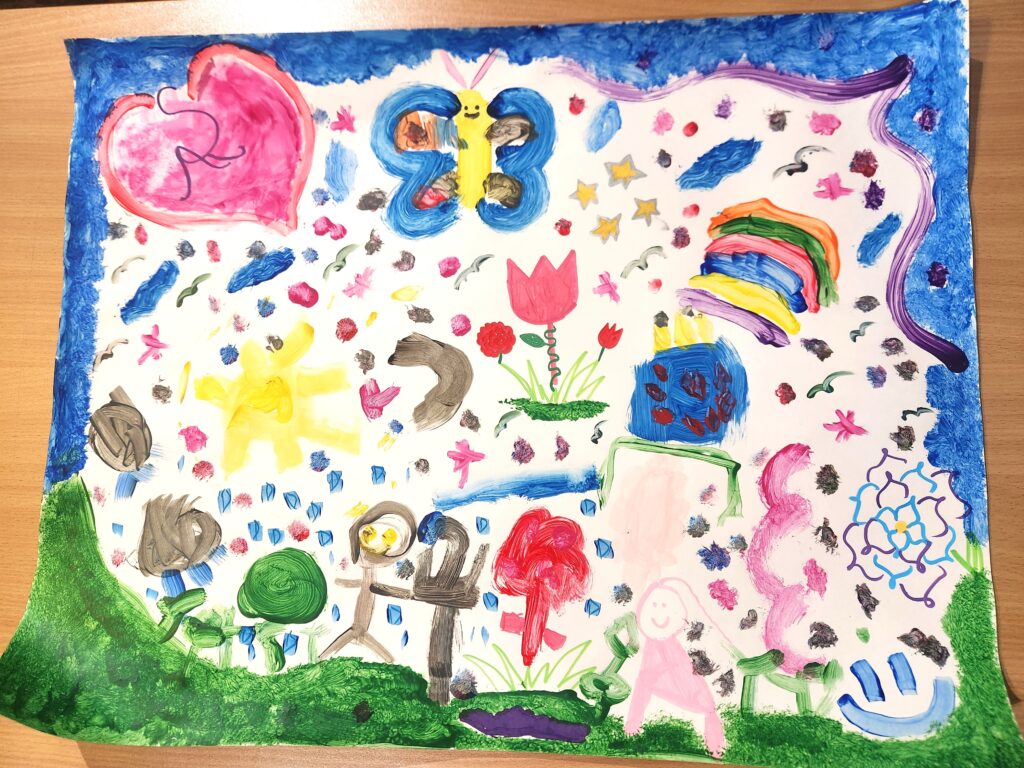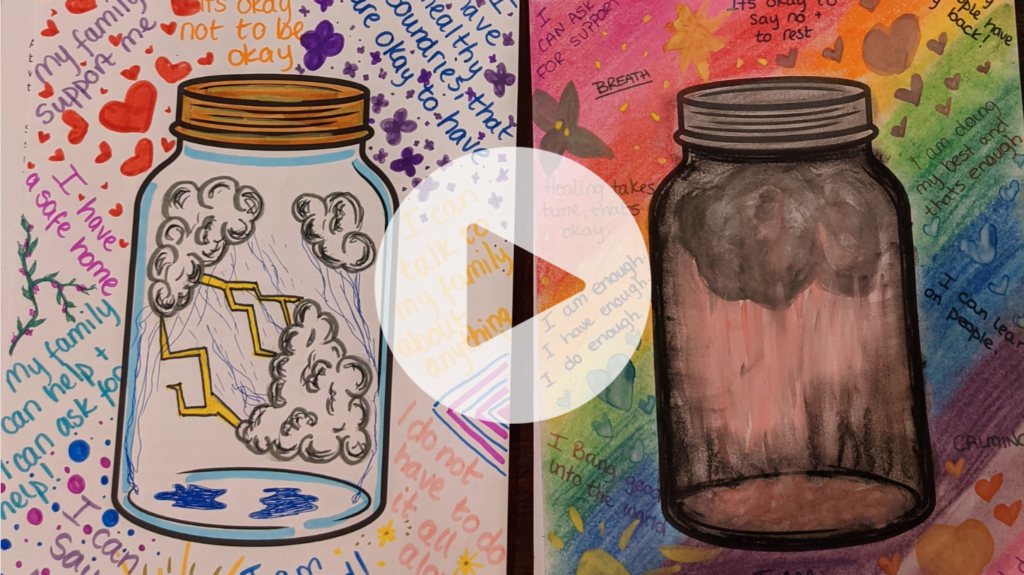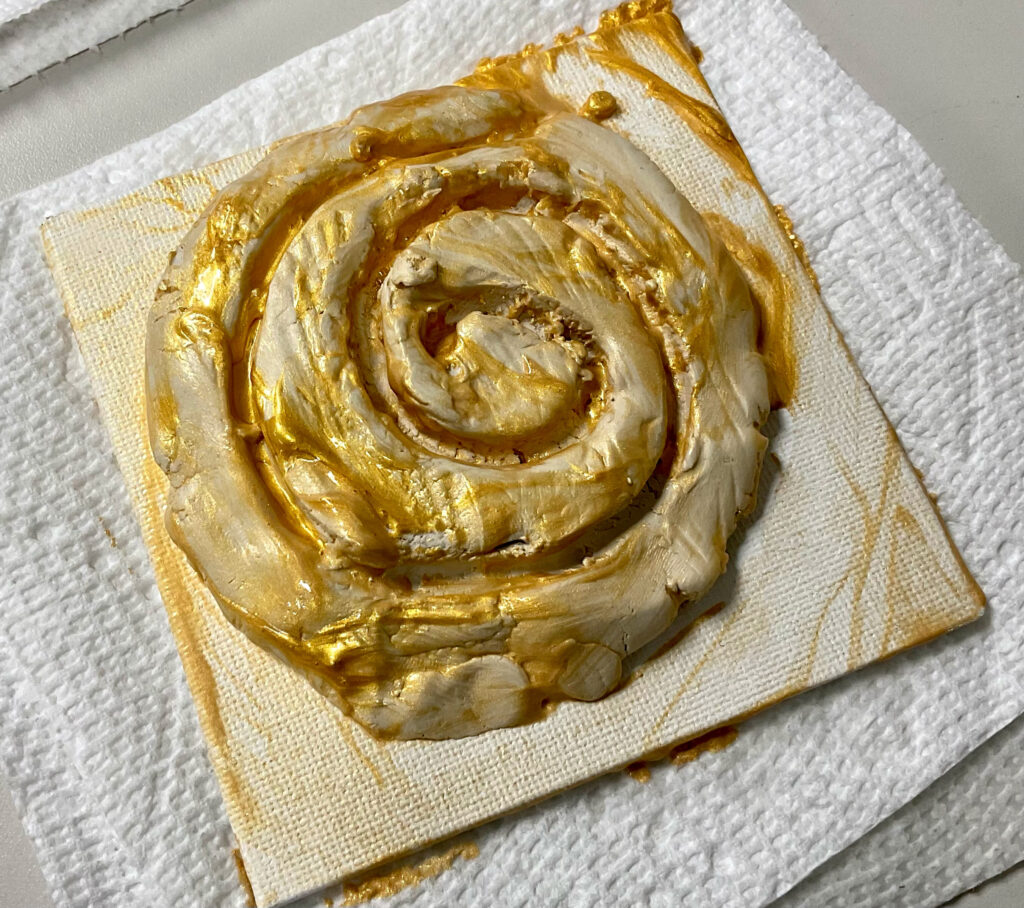As the Kinship Case Manager at A Greater Hope, a foster care service provider, I work with kinship families made up of grandparents or great-grandparents, aunts, or even older siblings, who are raising their young relatives when mom and dad are no longer an option. Most of them are informal caregivers, meaning they are not involved with Children and Family Services. Because of this, they assume full financial responsibility for the children in their care, which often stretches limited resources to meet growing needs such as food, clothing, and utilities. These caregivers, many of them supporting more than one relative in their household, carry an immense emotional and financial load. As summer begins, the responsibility of care intensifies, and their own needs often fall to the side.
As they welcomed the start of summer with their youth at home, I wanted to give them a moment to breathe, connect, and create something meaningful. We laid out bracelet-making materials of beads, cords, letter charms and played calming music as everyone settled in. The word “flexibility,” a core theme in the kinship program, anchored our activity. Being flexible means embracing uncertainty with grace, and this workshop was a chance to do just that. While we had planned the workshop for caregivers, with the youth in their care no longer in school, it quickly became apparent we would need to embrace flexibility and make it a family workshop.
What started as a quiet gathering turned into a warm, lively exchange. Caregivers and youth shared stories, laughed, and crafted together. As they picked out beads side by side, a grandmother learned her granddaughter had a crush. Another made a bracelet that brought a smile to her two-year-old granddaughter’s face. A great-grandmother matched her beads to her outfit, proudly showing it off. And in a touching moment, a little boy made a bracelet for me while his caregiver shared how much the program has meant to their lives.
To support their continued well-being, we closed the workshop by sharing resources: a self-care wheel, ideas for free and low-cost self-care activities, and local counseling services. The hope was to empower caregivers and teens to build on the experience of caring for themselves and healing while balancing the everyday life of a kinship family.
As they packed up their creations, caregivers expressed the impact the workshop had on them: “I haven’t done this in a while,” and “Gracias por todo” and “This was great.” Some have since shared how they are looking forward to the next workshop.
For us, the gathering highlighted just how powerful it is to center caregivers’ experiences. Through this activity, we saw how much they appreciated the time to nurture themselves, connect with others, and participate in creative expression that reinforced their value and resilience. The experience reaffirmed that self-compassion is not a luxury, it’s a vital part of sustaining care for others.
